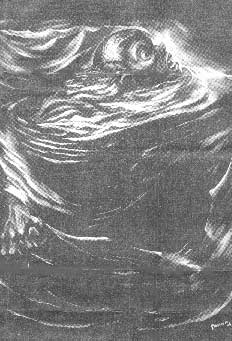

Honour the
Living:
In remembering our veterans today, we must
pay tribute to those who survived, not just for their battlefield service
but also for living with their memories.
Nov. 11, 1999
|
I can recall television reports from war correspondents in Viet Nam. I have vague memories of radio reports on the Korean Conflict. But I confess that I am not old enough to have memories of the Great Wars.
I still have a letter postmarked November 2, 1917 which he wrote while in a military hospital being treated for his wounds. It was addressed to his younger brother, Alex, who was serving in France as a Private with the 24th Infantry Battalion. When Alex was shot and killed just two weeks later, Michael’s letter was in his pocket. There is a hole through the letter from the bullet and his dried blood is on the envelope. The medal given to his mother says that her son died for freedom and honour. From hearing about these events, I learned that, however noble the cause, however necessary the action, war is ugly. Oh, there may be heroic tales of bravery, victories at great cost, enemies defeated. But in reality, war is not a game to be won, a competition of might between nations; it is man against man when to each, the other is defined as the enemy. It is proof of how cruel people can be in the face of enmity. Remembrance Day is not just a day to honour the fallen and cherish the victories. For many, it is a day to recall again the hellish deeds they committed and the atrocities they witnessed. These private horrors are often left unspoken and tend to be overlooked in fictionalized versions of the battles. Those of us who were not there can know only that young men, those that "shall not grow old," fought and died. We can read about it, watch movies and conger up images from what we know of history. But the veterans were there; their memories are based on events that were real. They felt the fear, the cold and the injuries and they know the pain they caused. They know that in war, one must do things that are inhuman. "War is at best barbarism," General Sherman said. "Its glory is all moonshine. It is only those who have neither fired a shot nor heard the shrieks and groans of the wounded who cry aloud for blood, ...war is hell." It seems impossible to conceive that their joyous sense of victory would not be poisoned by such memories. For periods of time, horrific images can be mercifully blanketed with forgetfulness but certainly there are times when they can rise up. The occasions for these recollections are many, not being restricted to Remembrance Day. A successful architect when he retired began to have combat nightmares from the Second World War. Another man, when his wife died, found that memories of war flooded his lonely mind. Such instances lead psychologists to suggest that these men are suffering from delayed cases of "post-traumatic stress disorder." They theorize that, after the war, many veterans had "basically toiled themselves to such a state of exhaustion that they had no time or energy to preoccupy themselves with wartime recollections." And that now, with more time on their hands, they are ripe with the symptoms of an overlooked mental illness. Psychologists predicted that events such as Stephen Speilberg’s 1999 movie, Saving Private Ryan, would evoke similar traumatic reactions. Deborah Richter, head of the Portland Vet Center, described the movie as "the ultimate trigger for posttraumatic experiences." In anticipation of this, the U.S. Department of Veteran Affairs established a toll-free counselling hot-line to deal with a flood of calls from anguished veterans. But, when asked about veterans’ responses, VA Public Affairs officer, Joel Preston Smith admitted that it was "actual pretty minimal." These men did not crumble as predicted. Having survived the war, they survived the movies and went on with their lives. In honouring our dead on Remembrance Day, we must also honour those who survived the wars. They are our "Brave and Strong;" not just in battle but in living with their memories. War veterans live civilized lives in a world that they know can be most uncivilized. They do not deserve to have the complexity of their private recollections reduced, for our convenience, to the simplicity of a diagnostic label. They deserve, instead, our respect as best expressed in a moment of enduring silence. |
tanadineen.com
@ Dr.Tana
Dineen
1998-2007
by
Dr. Tana Dineen, special columnist,
 The
only vivid images of war which are part of my personal life
come from stories told to me in my childhood by my grandmother’s
brother. Michael was a veteran of the First World War. I will
never forget how strange it felt to look into his empty eye
sockets as he described how, after being shot, he lay for
days in the muddy trenches.
The
only vivid images of war which are part of my personal life
come from stories told to me in my childhood by my grandmother’s
brother. Michael was a veteran of the First World War. I will
never forget how strange it felt to look into his empty eye
sockets as he described how, after being shot, he lay for
days in the muddy trenches.